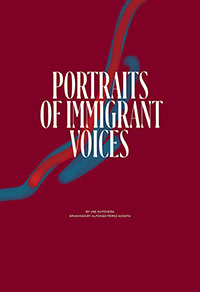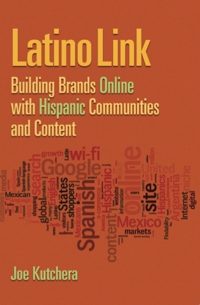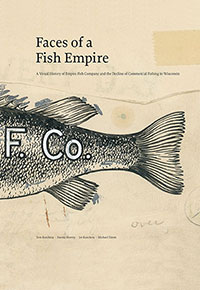This article originally appeared in the Fordham Business Review, which I wrote while doing an internship in Puerto Rico. Click here to read the first and second posts in this series.
Cultural Identity: Between the United States and Latin America
Mr. Molina feels that Puerto Ricans differentiate themselves from the United States culturally and politically through the term “La nación,” (The Nation). “The nation is a cultural term. State is a political term. They are not the same. They found a unique way to define their political status, and made it so good that it’s been successful. They do have to evolve something better in the future, maybe not now. But ‘the nation,’ I don’t have any doubt that they are a nation with a cultural identity, with their own music, food, and language.”
Ortiz says, “Latin Americans think that we are like a State, part of the U.S. People from the States probably don’t know that Puerto Rico exists [laughing]. I don’t know where Puerto Rico is. Show me please.” Therefore, he feels that Puerto Ricans must adapt culturally more often.
“This doesn’t affect me because I am pro-American. I believe it benefits us to be exposed to globalization. We need to be exposed to this; and the USA is a leader in globalization.”
Dr. Calem feels that even though Puerto Ricans hold American citizenship and are greatly influenced by the U.S., they maintain a unique identity which means something special to them. Because of this, she feels that the statehood movement will not be accepted anytime soon.
“There is a colonial mentality here. You’ve had one hundred years of occupation; one hundred years of American presence. That’s why we depend on welfare. In the early 50’s when this started up, we had incredibly independent people – people who worked, people who struggled. Nobody wanted food stamps. It’s the same thing in the States. But it’s compounded here because it came from Uncle Sam from outside. A lot of the left wing intellectuals say they’ve killed us. We can’t stand up for ourselves. We expect to be given things. We don’t expect to be able to stand up and say what we want or need.”
Sometimes Latin Americans assume that Puerto Rico is just like other countries in Latin America. Weitzman noted that when a Chilean became the director of the local office for Johnson & Johnson in Puerto Rico, he expected business to be done much like it is in Chile and Latin America. In contrast, the Puerto Ricans in her office like to choose when they do something in an “American” way or in a “Latin American” way.
Weitzman continued by saying, “When the Chilean came, everyone thought that he was not going to understand us. He’s going to think we operate like Latin America but we’re not Latin American. Even the language, believe it or not, was a problem.” While the previous boss wrote his E-mails in English and didn’t speak any Spanish, the Chilean wrote his in Spanish. Weitzman said that the employees wondered how to respond – in English or Spanish.
In this way she describes Puerto Rico as a schizophrenic place because it is caught between those two worlds. Puerto Ricans see themselves as both Latinos and Americans, she says, and choosing between the two cultures seems random to her.
Molina says, “I think Puerto Ricans are perceived as Latinos. But Puerto Ricans perceive themselves as different from Latin America. It all depends upon the scenario, the context. When they talk about their relationship with the U.S., the majority of them perceive themselves as Latinos, with their own culture, their own roots. When they talk about Latin America, they perceive themselves as different in the way that they have more prosperity, that they are better, that they don’t have the kind of poverty that you see in Latin America. They have this sense of superiority over the rest of Latin America.”
Political and Economic Identity as a Commonwealth of the United States
Many American companies do business in Puerto Rico because of its American political status which makes it easy to set up shop. Tax breaks and other economic incentives brought U.S. companies here during the industrialization period of the 1950’s and kept them here.
Lugo López says, “It helps that Puerto Rico has a relationship with the United States like we have now. We are U.S. citizens. We have the same postal service, the same money, the same capital systems. It’s easier to do business.”
Puerto Rico holds an unusual economic position between Latin American and the U.S. Compared to other States in the U.S., Puerto Rico has the lowest per capita income; but compared to other countries in Latin America, Puerto Rico has the highest per capita income.
Managing Language and Cultural Differences
Over the course of the discussions, my interviewees came up with four different solutions to managing differences in language and culture in Puerto Rico. They are: learning the language, creating self-worth among the employees and self-training modules on the internet and world wide web, and training for the family.
The first and most basic solution to cultural communication barriers is making an effort to learn the language. Mr. Molina says,“ Our former general manager, came here from the U.S. He had been here for four or five years. In his last year he started using Spanish in his speeches at the beginning and end. The people loved it because they saw him making an effort to communicate.”
“Because executives today do business all over the world, they have to understand cultural differences if they want to be effective. That means differences in culture that range from ethics to family issues to ways of doing business. If they want to be successful in business, companies should choose managers that speak Spanish because they will have a competitive advantage.”
When a business leader does not learn the language, Molina says “It is perceived like the boss coming from a different country and that he is not like us. It impacts styles of leadership. I think that they could improve their leadership by learning Spanish.”
A second solution Dr. Nina-Curt says, is personalizing work and building stronger communities in professional environments, something for which she has done training. “It’s finally seeping down because business is spending so much in retraining personnel. They talk about self-worth. They talk about interpersonal communication in business. But usually, the management never goes to those training sessions.”
She feels that cultural training will not only yield better understanding but better productivity. Employees need to function from what they believe in, their values and feelings – with feelings of deep identity, joy, and pride. “In twenty five years, most of the Americans have become so aware in the business world, that they immediately ask for cultural awareness training. It works tremendously here in Puerto Rico.” By creating a family-like atmosphere in a company, Dr. Nina-Curt says, “productivity and loyalty doubles, maybe triples.”
Mr. Molina feels that a reasonably inexpensive solution would be to have Human Resources provide cultural self-training sessions on the Internet not only for the expatriate employee but also for his/her family. Combining this with help from a local contact would be very effective.
Molina especially emphasizes training for the family. “If your family is not happy you just have to leave. It doesn’t matter if you personally adapt. If you risk your family unity, it’s too much. Companies haven’t taken care of that in the past. I think that even now there is room for improvement in every company, especially with the practical things. When you move from one country to another, your family is lost at the beginning. They don’t have friends. They don’t know where to go for basic things. They don’t know where it’s safe to go. Basic things like driver’s licenses you have to find on your own. Sometimes you find out what to do when you have your first contact with local police. [laughing]”
Yet another solution is keeping music and cultural activities for the Puerto Rican business person alive and well Dr. Nina-Curt says. “The one thing I think that has prevented total cultural contamination is that music hasn’t died here on the island. It’s still good for a man to be a musician, a poet, or a painter in Puerto Rico and still be a top manager.”
“People celebrate Christmas and holidays. You should see the dances they have at Christmas time for workers.Management doesn’t dare take them away. If somebody dies, wreaths are sent. In the States, the Puerto Ricans are shot to pieces because none of the important cultural institutions help them maintain self-worth. You haven’t seen the depression and the bitterness and the violence that I have seen among some of the Hispanics, both Tex-Mex and Puerto Rican. I don’t see it here. I think it’s a blessing we’re an island and a small one at that.”






